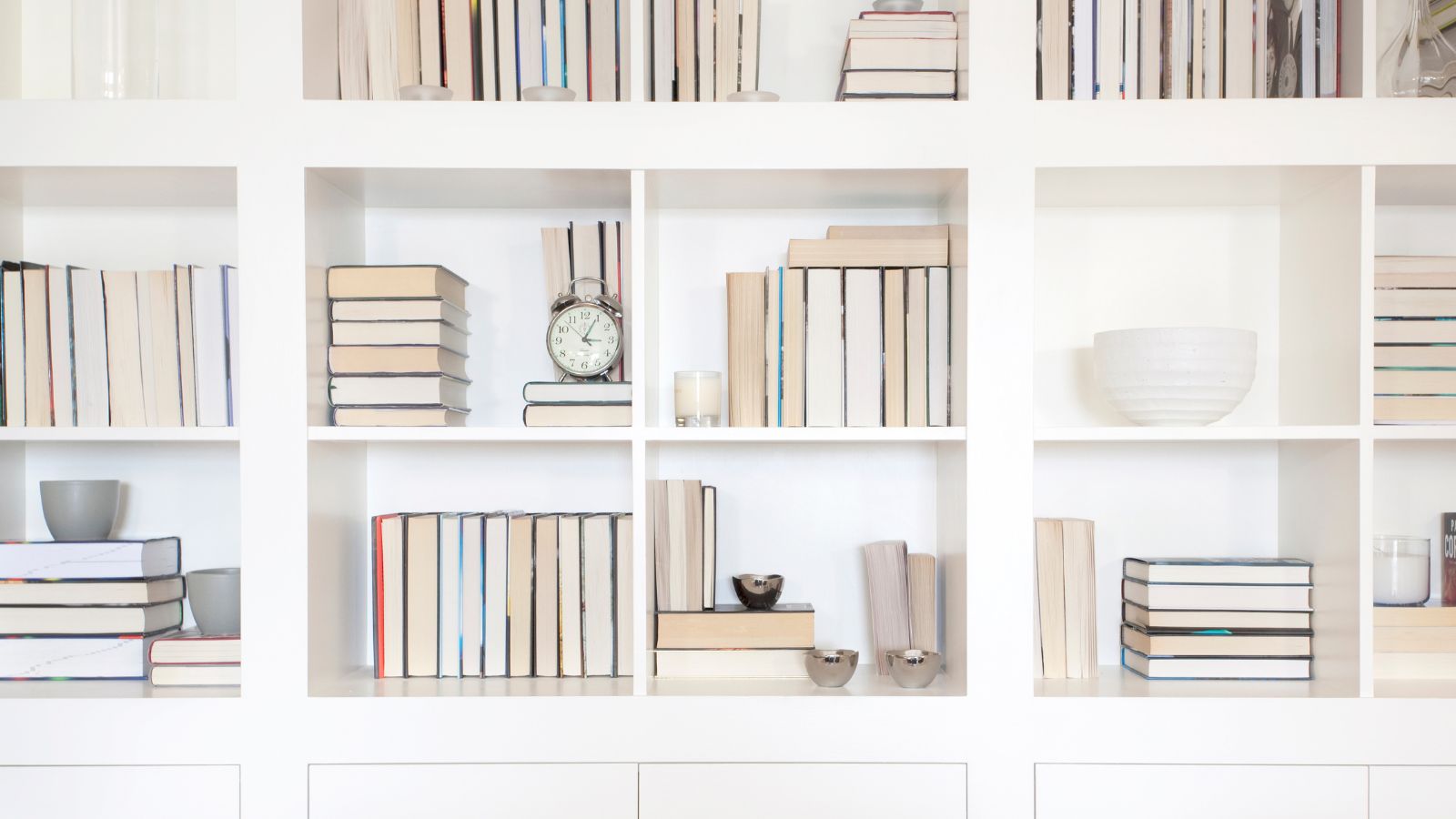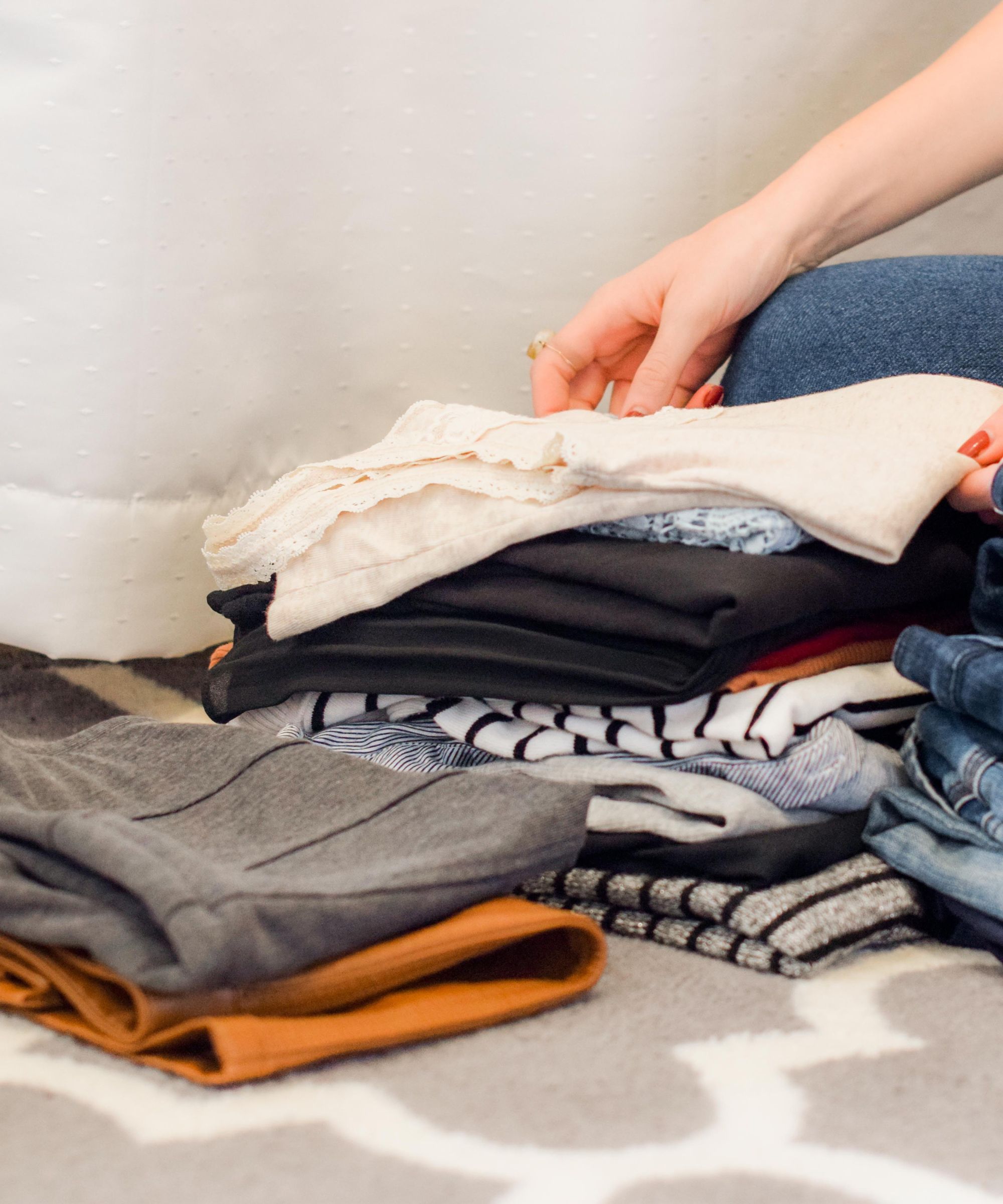How I overcame a 'scarcity mindset' when decluttering my home
While not as serious as hoarding, having a scarcity mindset has held me back from truly decluttering for years – here’s how I am overcoming it


Design expertise in your inbox – from inspiring decorating ideas and beautiful celebrity homes to practical gardening advice and shopping round-ups.
You are now subscribed
Your newsletter sign-up was successful
Want to add more newsletters?

Twice a week
Homes&Gardens
The ultimate interior design resource from the world's leading experts - discover inspiring decorating ideas, color scheming know-how, garden inspiration and shopping expertise.

Once a week
In The Loop from Next In Design
Members of the Next in Design Circle will receive In the Loop, our weekly email filled with trade news, names to know and spotlight moments. Together we’re building a brighter design future.

Twice a week
Cucina
Whether you’re passionate about hosting exquisite dinners, experimenting with culinary trends, or perfecting your kitchen's design with timeless elegance and innovative functionality, this newsletter is here to inspire
If you are anything like me, you may not have heard of a ‘scarcity mindset’ before, and be equally unaware that you have one. But, as it turns out, it is one of the biggest roadblocks when it comes to decluttering.
A scarcity mindset is holding onto the belief that we cannot truly declutter everything ‘just in case’. Usually, it presents itself as being overly cautious to get rid of anything or use products up in case an important use crops up for it later down the line.
I have been living with this negative thinking pattern for years but have slowly been working through it. Here is how I learned to overcome my hoarding tendencies, and why it is vital to declutter your home properly.
How a scarcity mindset can make clutter worse
A scarcity mindset is usually something that is passed down through generations. For me, I lived in a household where we kept a hold of most things in case we could find a use for them later, or repurpose them. A lot of the time, we did manage to do just that (having a handy DIY father and a mother who is a whizz with a sewing machine certainly made that easier). However, even as a child, I remember not wanting to use up everything in a toy science kit because then it would all be gone. As a result, I never used it at all and it expired – it was gone regardless.
Scarcity | $12.38 at Amazon
Sendhil Mullainathan and Eldar Shafir's book Scarcity is rated one of the best books on this negative mindset, and evaluates how the scarcity mindset evolves, and what you can do to alter it.
This is a classic example of a scarcity mindset and, now I am older, that has translated to not wanting to get rid of old tins of paint in case I need to touch something up later, keeping a hold of old containers and kitchen pans, or piling up unused plant pots in case these ended up as home items I would regret decluttering.
While this is not as bad as hoarding by any means, it certainly leads to a serious build-up of random clutter and junk that, even though it is all well organized, really should have gone a long time ago. I just stopped myself because I couldn’t declutter when overwhelmed.
How I overcame my scarcity mindset

It was not until I moved to university that I started to tackle this unhelpful thinking style and I needed to decide what was truly important to me. Having left most of my clutter at home, I realized that it was really simple to live without it all and I was in a unique position to realize what it was I really missed.
Design expertise in your inbox – from inspiring decorating ideas and beautiful celebrity homes to practical gardening advice and shopping round-ups.
Coming home from my first semester, I collected anything I wished I had taken in the first place and got to work on drastically cutting back everything else, having created a decluttering checklist and being in a more positive state of mind.
These are the four things I did to overcome a scarcity mindset.
1. Acknowledging things that have gone that I don't miss
One of the biggest steps to overcoming a scarcity mindset for decluttering was to recognize all the things I had previously cleared out that I didn’t miss. I found that I couldn't even remember most of the things I had thrown out or donated at all – a clear sign I never needed to hold onto them. This then encouraged me to get rid of more things and made me feel safer in my decluttering choices. This was especially useful when decluttering clothes.
If recognizing things you won't miss doesn't offer you this security, then you could try bundling your ‘just in case’ items up in a box and placing them somewhere out of mind like an attic or basement, making a reminder in your calendar to reconsider them in six months time. If you have not thought about or needed any of the items in those six months, bin the box! (or donate, of course). It is a great way to avoid decluttering regret.
2. Practicing different decluttering styles to help find one that sticks
I am fortunate that, because of my job, I have to try out different methods of decluttering and clearing out my home. As a result, I have had the time to work out what works best for me and what systems make letting go of things a little easier. Personally, I have stuck with the 'ski slope' organizing method I tried a few months back, allowing me to work in one room at a time with the primary goal of tidying up and home organizing, with the added benefit of making me readdress ‘homeless’ items and whether or not I need them.
I also find the capsule decluttering hack helpful for staying on top of my wardrobe, targeting items before they come into my home, saving me time and money, so I don't have to go through the rigmarole of convincing myself to get rid of them later down the line.
3. Realizing that almost everything is replaceable
The beauty of the internet is that most things are only one day away. The rise of Amazon has been really helpful in letting things go – especially when I started following the 20/20 rule for decluttering. The idea is that any item that I can replace for less than $20 and in under 20 minutes (or look up and place the order for in under 20 minutes) can be safely let go of as I know, should the occasion arise, it is simple to get back.
4. Seeking professional help
There is no harm in seeking help either from a professional declutter who can offer an outsider's view on all the clutter or, like me, a therapist who can help to develop some more helpful thinking styles to get you out of your rut – or both!
More often than not, serious attachments to belongings are difficult to deal with alone, and there may be a deeper issue holding you back from freeing your home from clutter. Talking to a professional can help to establish healthier routines and establish why you feel the way you do, helping you to make progress more easily and holding you accountable to make some changes.
FAQs
What are the signs of a scarcity mindset?
A scarcity mindset manifests itself in a few ways. Generally, you will think pessimistically and feel like you need to hang on to everything to offer yourself some kind of comfort or security or to prevent feelings of guilt – but feel guilty because of hanging onto things anyway. You may notice clutter accumulating in your home, even if it is well-organized, or have a fear that you will run out of things or that resources are limited when, in reality, they are simple to come by.
How do you mentally prepare to declutter?
When setting up to start decluttering, it can help to set some realistic decluttering goals and write them down so you can visualize what it is you are setting out to achieve. Break these goals down into milestones, offering you safe points to stop what you are doing and take a break to resume later. You might find that ticking things off inspires you to carry on working, but it offers you a nice safety net that once you have finished decluttering your vanity, for instance, you can stop there and rest before trying to tackle your closet.
Don't get me wrong, I still sometimes struggle when faced with decluttering sentimental items, and do hang on to some clothing that doesn't quite suit my style anymore in case I need to go to a vintage throwback party, but it is getting easier – onwards and upwards.

Chiana is Homes & Gardens’ kitchen appliances editor. With a lifelong passion for cooking and baking, she grew up experimenting in the kitchen every weekend with her baking-extraordinaire Mom, and has developed a great understanding of how tools and appliances can make or break your ideal relaxing kitchen routine.
